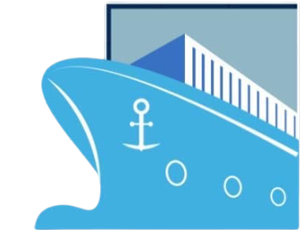
Restricted Authorization in India
Expert guidance for navigating import and export restrictions in India's regulatory framework

Understanding Restricted Authorization
In India, certain goods are subject to import and export restrictions to protect national security, environment, wildlife, and public health. These items require special authorizations before they can be legally traded across Indian borders.
The Directorate General of Foreign Trade (DGFT) under the Ministry of Commerce and Industry regulates these restrictions through the Foreign Trade Policy and classifies items as:
Free
Items that can be imported or exported without any restriction
Restricted
Items requiring an authorization or license before import/export
Prohibited
Items not permitted to be imported or exported under any circumstances
Restricted items require proper authorization from relevant government agencies before they can be legally imported into or exported from India. Trading in these items without proper authorization can lead to severe penalties, including confiscation of goods, monetary fines, and even imprisonment.
Categories of Restricted Items
Import Restrictions
- Livestock Products: Certain animal products require clearance from Animal Quarantine authorities
- Plants & Plant Materials: Require Phytosanitary Certificate from Plant Quarantine authorities
- Pharmaceuticals: Drugs and cosmetics requiring Drug Controller General of India approval
- Chemicals & Hazardous Substances: Require clearance from Ministry of Environment & Forests
- Electronic & IT Products: Require Bureau of Indian Standards (BIS) certification
- Wireless Equipment: Require clearance from Wireless Planning & Coordination Wing
- Food Products: Require Food Safety and Standards Authority of India (FSSAI) approval
Export Restrictions
- SCOMET Items: Special Chemicals, Organisms, Materials, Equipment and Technologies
- Rare Earth Minerals: Require special authorization from Department of Atomic Energy
- Wildlife & Wildlife Products: Require Wildlife Crime Control Bureau clearance
- Seeds: Require certification from National Biodiversity Authority
- Antiquities & Art Treasures: Require Archaeological Survey of India approval
- Essential Commodities: Items like onions, pulses, edible oils during shortages
- Petroleum Products: Require authorization from Ministry of Petroleum & Natural Gas
Authorization Process
Step 1 : IEC Registration
Obtain an Importer-Exporter Code (IEC) from DGFT, which is mandatory for all import and export activities in India.
Step 2 : Item Classification
Identify the correct ITC-HS (Indian Trade Classification - Harmonized System) code for your product to determine if it falls under restricted category.
Step 3 : Documentation Preparation
Compile all necessary documents including product specifications, end-use certificates, and other supporting documents required by the concerned regulatory authority.
Step 4 : License Application
The application undergoes review by the concerned regulatory authority, which may involve inter-ministerial consultations for certain sensitive items.
Step 5 : Application Review
The application undergoes review by the concerned regulatory authority, which may involve inter-ministerial consultations for certain sensitive items.
Step 5 : License Issuance & Compliance
Upon approval, receive the import/export license and ensure compliance with all conditions specified in the license during the actual import/export process.
Key Information on Restricted Authorizations
| Parameter | Details |
|---|---|
| Validity Period | Generally 12-24 months from the date of issue, depending on the type of license |
| Transferability | Non-transferable; can only be used by the entity to which it is issued |
| Amendment Provisions | Amendments allowed for certain parameters like quantity, value, port of shipment, etc. |
| Revalidation | Possible extension of validity period on case-by-case basis, subject to approval |
| Processing Time | Typically 15-45 days, depending on the nature of the item and complexity of the case |
| Application Fees | Varies based on the type of license and value of goods (ranges from ₹500 to ₹10,000) |
| Mode of Application | Online through DGFT portal (dgft.gov.in) |
| Penal Provisions | Non-compliance may lead to penalties under Foreign Trade (Development & Regulation) Act, Customs Act, and other relevant laws |
Key Regulatory Authorities
Directorate General of Foreign Trade (DGFT)
Primary authority for issuing import and export licenses and formulating foreign trade policy
Central Board of Indirect Taxes & Customs (CBIC)
Enforces import/export regulations at ports and monitors compliance with trade restrictions
Drug Controller General of India (DCGI)
Regulates import/export of pharmaceuticals, drugs, cosmetics, and medical devices
Food Safety and Standards Authority of India (FSSAI)
Regulates import of food items to ensure they meet safety and quality standards
Wildlife Crime Control Bureau (WCCB)
Regulates trade in endangered species and wildlife products under CITES convention
Bureau of Indian Standards (BIS)
Certifies electronic and IT products to ensure they meet quality and safety standards
Our Services for Restricted Authorizations
Product Classification
Expert assessment to determine if your products fall under restricted categories and identify applicable regulatory requirements.
License Application
Complete assistance in preparing and submitting import/export license applications with all required documentation.
Compliance Programs
Development of internal compliance programs to ensure ongoing adherence to import/export regulations.
Risk Assessment
Comprehensive evaluation of import/export risks and development of mitigation strategies for restricted items.
Training & Education
Customized training programs for staff to understand import/export regulations and compliance requirements.
Advisory Services
Expert guidance on regulatory updates, policy changes, and best practices for import/export compliance.
Benefits of Proper Compliance
Legal Compliance
Avoid legal penalties, fines, and potential import/export restrictions by ensuring full compliance with regulations.
Enhanced Reputation
Build trust with international partners and customers by demonstrating commitment to regulatory compliance.
Market Access
Gain access to international markets by meeting regulatory requirements for restricted items.
Risk Mitigation
Reduce business risks associated with unauthorized imports/exports and potential regulatory violations.
Competitive Advantage
Stand out from competitors by demonstrating expertise in navigating complex import/export regulations.
Efficient Clearance
Proper documentation and compliance leads to faster customs clearance and reduced delays at ports.